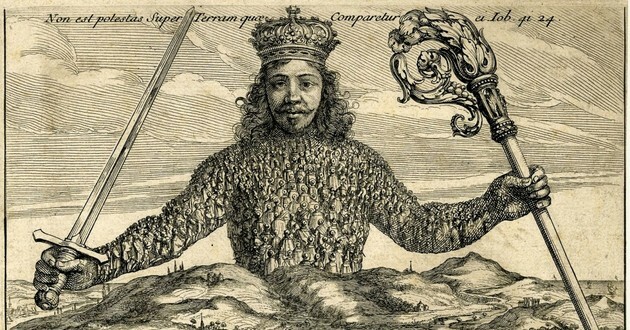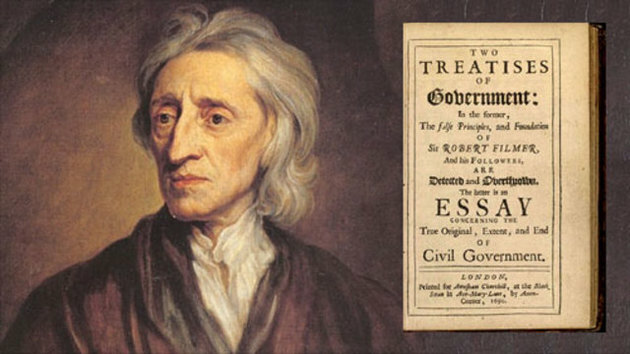O social contract it is a metaphor used by contractualist philosophers to explain the relationship between human beings and the state.
This figure of speech was used especially by Thomas Hobbes, John Locke and Jean-Jacques Rousseau.
Contractualists
The so-called "contractualists" are the philosophers who argued that man and the state made a kind of agreement - a contract - in order to guarantee survival.
The human being, according to contractualists, lived in the so-called Natural State (or state of nature), where he did not know any political organization.
From the moment human beings feel threatened, they need to protect themselves. For this, he will need someone greater and impartial, who can guarantee his natural rights.
Thus, human beings accept to abdicate their freedom to submit to the laws of society and the State. For its part, the State is committed to defending man, the common good and providing conditions for it to develop. This relationship between the individual and the state is called social contract.
Let's now see how the main contractualist authors thought about this issue.
Articles of Incorporation according to Thomas Hobbes

Thomas Hobbes was born in 1588 and died in 1679 in England. So he was able to witness the English political changes during the bourgeois revolutions.
For Hobbes, men needed a strong state, as the absence of a superior power resulted in war. The human being, who is selfish, submitted to a greater power, just so that he could live in peace and also be able to prosper.
It is not by chance that Hobbes calls the "State" Leviathan, one of the names the devil receives in the Bible, in order to reinforce that it is man's perverse nature that makes him seek union with other men.
The State, for its part, will have the duty to avoid conflicts between human beings, ensure security and preserve private property.
In this way, only the king, who concentrates the power of arms and religion, could guarantee that men lived in harmony.
Articles of Incorporation according to John Locke

John Locke was born in 1632 and died in 1702, in England. His life took place in the same period of the English Revolution which redefined British monarchical power.
According to Locke, man lived in a natural state where there was no political or social organization. This restricted their freedom and made it impossible to develop any science or art.
The problem is that there was no judge, a power above the others that could inspect whether everyone is enjoying natural rights.
So, to solve this power vacuum, men will freely agree to constitute themselves in an organized political society.
Man will be able to directly influence the political decisions of civil society either through the exercise of direct democracy or by delegating his decision-making power to someone else. This is the case of representative democracy, in which citizens elect their representatives.
For its part, the State has the purpose of ensuring the rights of men such as life, liberty and private property.
Articles of Incorporation according to J.J. Rousseau

Jean-Jacques Rousseau was born in Switzerland in 1712 and died in France in 1778, where he spent most of his life.
Unlike Hobbes and Locke, Rousseau will argue that man, in his natural state, lived in harmony and was interested in others. For Rousseau, life in a society undergoing industrialization did not favor men in its moral aspect.
As technical development gained ground, human beings became selfish and petty, without compassion for their fellow man.
In turn, society became corrupt and corrupted the human being with its demands to supply the vanity and appearance of that society.
In this way, Rousseau relates the emergence of private property with the emergence of social inequalities.
Thus, it was necessary for the State to emerge in order to guarantee civil liberties and avoid the chaos brought about by private property.
Rousseau's ideas will be used by several participants of the French Revolution and also, later, throughout the 19th century by the theorists of the socialism.
Summary
Below is a small table summarizing the main topics we have seen in this text:
| Philosopher | Thomas Hobbes | John Locke | J.J. Rousseau |
|---|---|---|---|
| Human nature | Man is selfish. | The man is good, but he wages war to defend himself. | Man is good, but property has corrupted him. |
| State creation | Avoid mutual destruction. | Protect property and thus make man progress. | Preserve civil liberties and human rights. |
Type of Government |
Absolute monarchy, but without the justification of Divine Law. | Parliamentary monarchy, without the justification of Divine Law. | Direct democracy. |
| Influence | Law of Modern Law | English Revolution and American Constitution |
French Revolution Communism |
| Quote | "man is man's wolf." | "Where there is no law, there is no freedom." | "Nature made man happy and good, but society depraved him and made him miserable." |
read more:
- Contractualism
- Enlightenment
- Political Philosophy
- modern state
- Formation of National Monarchies
- Puritan Revolution
- glorious revolution
- French Revolution

